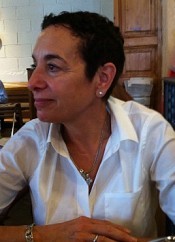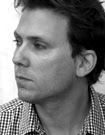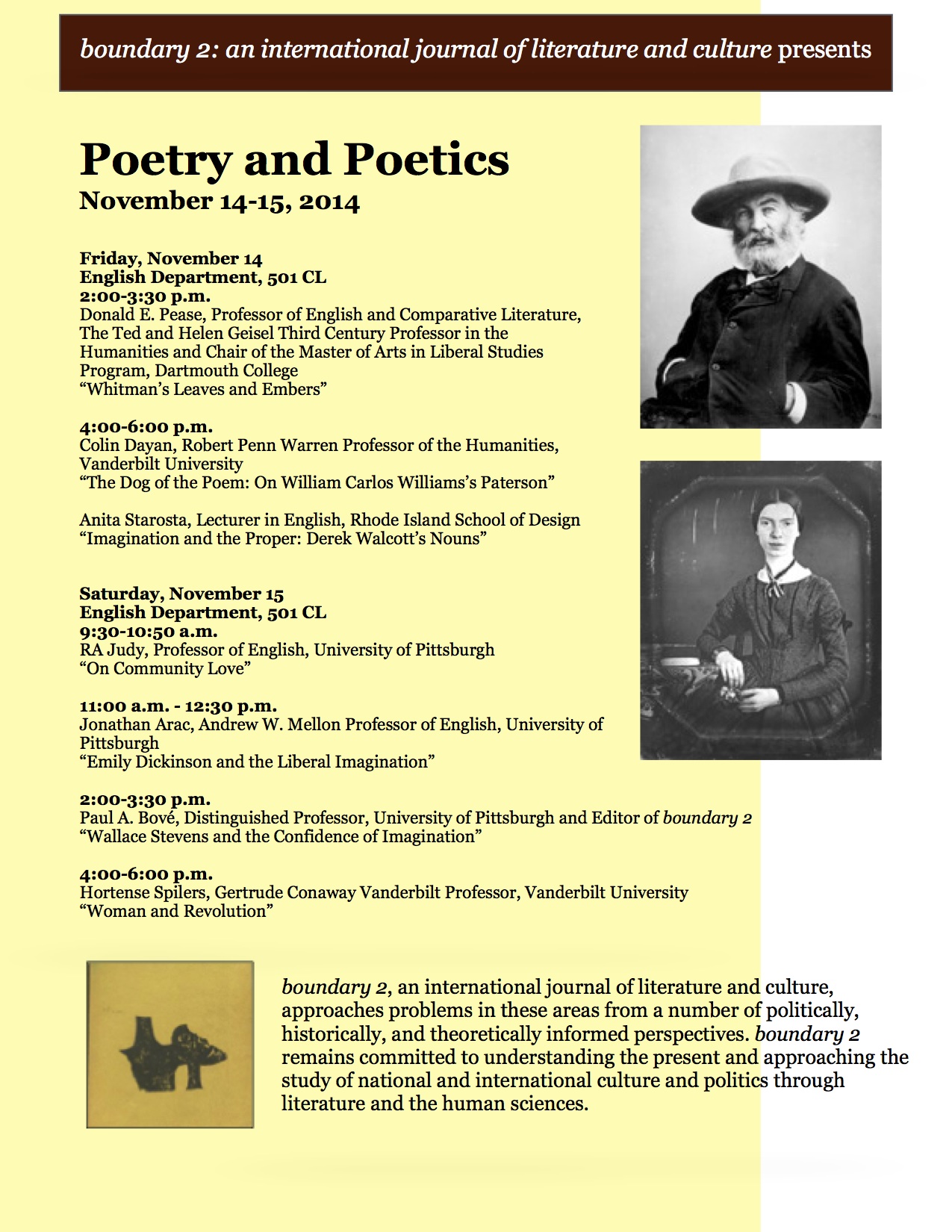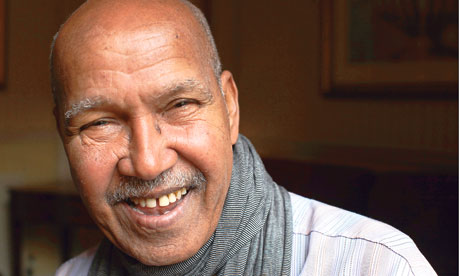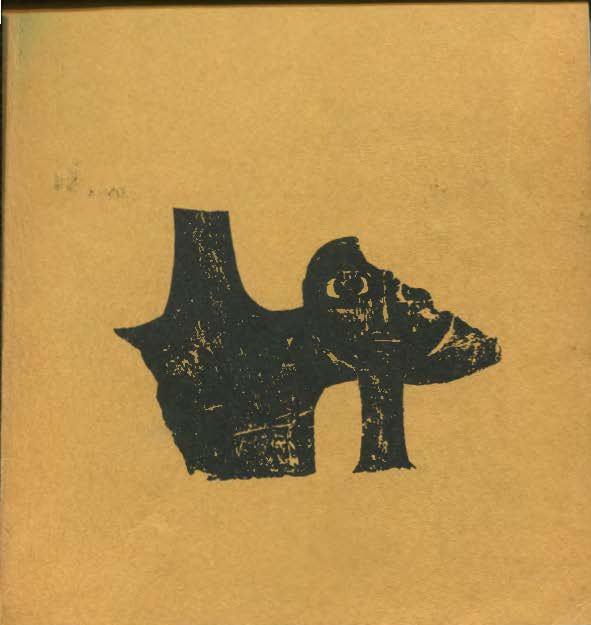The Futures of American Studies Institute: Questions Worth Asking
Monday, June 22 – Sunday, June 28, 2015
Director: Donald E. Pease (Dartmouth College)
Co-Directors: Colleen Boggs (Dartmouth College), Soyica Diggs Colbert (Georgetown University), Elizabeth Maddock Dillon (Northeastern University), J. Martin Favor (Dartmouth College), Winfried Fluck (Freie Universität, Berlin), Donatella Izzo (Università degli studi di Napoli “L’Orientale,”), Eric W. Lott (City University of New York, Graduate Center)
http://www.dartmouth.edu/~futures
Institute Faculty:
Stephen M. Best (University of California at Berkeley), Barrymore Anthony Bogues (Brown University), Kimberly Juanita Brown (Harvard University), Hamilton Carroll (University of Leeds), Christopher Castiglia (Penn State University), Michael Chaney (Dartmouth College), Russ Castronovo (University of Wisconsin at Madison), Duncan Faherty (City University of New York, Graduate Center), Nancy Fraser (New School), Elizabeth Freeman (University of California at Davis), Christian Haines (Dartmouth College), Glenn Hendler (Fordham University), Cindi Katz (City University of New York, Graduate Center), Caroline Levander (Rice University), Heather Love (University of Pennsylvania), Lisa Lowe (Tufts University), Giorgio Mariani (Sapienza Università di Roma), Annie McClanahan (University of Wisconsin at Milwaukee), Alan Nadel (University of Kentucky), Tavia Nyong’o (New York University), Heike Paul (Friedrich-Alexander-Universität, Erlangen-Nürnberg), Eliza Richards (University of North Carolina at Chapel Hill), Judith Roof (Rice University), John Carlos Rowe (University of Southern California), Ivy Schweitzer (Dartmouth College), Jonathan Senchyne (University of Wisconsin at Madison), José David Saldívar (Stanford University), Caleb Smith (Yale University), Hortense Spillers (Vanderbilt University)
Description:
The eighteenth year of the Institute is the first of a five-year focus on “Questions Worth Asking.” The speakers at the 2015 Futures Institute are invited to address questions concerned with emergent, residual, and dominant formations within the field of American Studies. Each of the following questions will serve as the basis for a plenary session consisting of three invited speakers and a moderator:
What are the strengths and limitations to the digitization of American Studies?
What is surface reading? Why did it emerge? What are its strengths and limitations?
How has Afro-Pessimism reconfigured African-American Studies?
How have historical, cultural, and geo-political forces brought about changes in the periodization of American literary studies?
How have financial speculation and state securitization influenced the mode of production of contemporary US literature?
Why have US American literary studies scholars returned to the literatures of the Civil War at this historical conjuncture?
What are the new directions in queer theory?
What are the new European perspectives on Trans-Atlantic American Studies?
What are the new directions in hemispheric and Trans-Pacific Studies?
The Institute is divided into plenary sessions that feature talks from Institute faculty and research seminars in which all participants present and discuss their own work-in-progress. Each day of the institute begins with a morning session in which plenary speakers deliver presentations of no longer than thirty-minutes that contribute to our convoking topic. These presentations are followed by questions from the participants. After a lunch break, the Institute’s participants meet in intensive workshop groups (consisting of no more than 15 participants), each of which is led by a Co-Director of the Institute. These workshops offer those enrolled in the Institute–over one hundred scholars from a variety of disciplines and institutions–the opportunity for critical conversations about the central intellectual issues in their research.
The Institute welcomes participants who are involved in a wide range of disciplinary and interdisciplinary interests. Their research need not be restricted to the questions organizing the plenary sessions.
The Institute was designed to provide a shared space of critical inquiry that brings the participants’ work-in-progress to the attention of a network of influential scholars. Over the past seventeen years, plenary speakers have recommended participants’ work to the leading journals and university presses within the field of American Studies, and have provided participants with recommendations and support in an increasingly competitive job market.
Response to the Institute:
“The intense academic experience of the Futures Institute has been immensely valuable for my development as a scholar. A wide variety of lectures has given me a glimpse of the freshest thinking being done in the field of American Studies, and a chance to meet and talk with leading scholars whom I might have seen only from afar at larger conferences. Stimulating seminar discussions have challenged me to become a more responsive colleague and to situate my own work more effectively in an ongoing critical conversation. I feel confident that I’ll carry my network of friends, mentors, and intellectual fellow travelers well beyond those summer days in Hanover!”
– Leslie Eckel, Futures Participant
“At the Futures of American Studies Institute, Donald Pease and Elizabeth Dillon have created a space of intellectual vitality that is absolutely unparalleled. The plenary lectures, given by internationally renowned figures in the field American studies, were a continual source of energy and inspiration. Yet what was truly remarkable about this Institute was the sense in which it was more than simply a collection of brilliant individuals. Through a seminar structure that actively engages participants and plenary speakers alike, the Institute invites each participant into the discussion of the state of American studies, insisting that each participant share the work they hope to contribute to the futures of this field. The result is the building of a community that is supportive yet challenging, in which each person is invested in helping others rethink their ideas in exciting new ways. This community has given me a completely new and valuable outlook on the work I do, and upon the ways this work intersects with the larger field of American studies. It was one of the best educational experiences I’ve ever had, and I only hope I can continue to be a part of the community this Institute has fostered in the years to come.”
– Jesse Cross, Futures Participant
“The combination of intensive workshops devoted to each participant’s work in progress, a dizzying array of fantastic plenary speakers, and the general atmosphere of intellectual fecundity that pervades the Institute sets it apart from all other academic gatherings, providing a serious workspace for critical discussion and exploration that is far greater than the sum of its parts. For all of its strengths, the single greatest virtue of the Futures Institute is its capacity to produce in every one of its participants an experience of intellectual euphoria that ultimately manifests itself as a kind of productive exhaustion.”
– Brian Thill, Futures Participant
FEE:
The fee for the Institute (covering registration, housing, and seminars) is $695.00. The fee to attend only the Institute plenary sessions is $500.
APPLICATIONS:
Applications for the 2015 Institute will be accepted until all slots have been filled, but applications received by May 22, 2015 will be granted priority. Applicants should send a brief description of their own projects (no more than 1 page) along with a current CV, a writing sample (10-15 pages) and a $10 application fee (please make checks payable to “Dartmouth College”).
Applications should be mailed to:
The Futures of American Studies Institute
Dartmouth College
116 Wentworth Hall
Hanover, NH 03755.
For further information, please contact:
Futures of American Studies
email: Futures.of.American.Studies.Institute@Dartmouth.edu
url: click here
facebook: click here
phone: 603-646-3592

